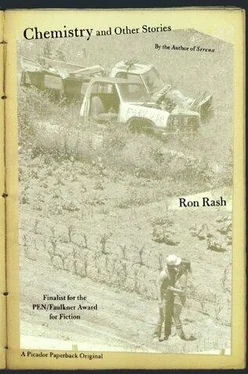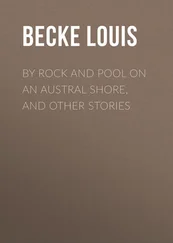“We’ve done well then. Twenty men lost out of a hundred and ten. I’ll take that any winter.”
“Especially this one. Campbell claims he’s never seen a worse one.”
Serena’s horse stamped impatiently.
“What brings you out this morning, Pemberton?”
“Harmon’s daughter is in the dining hall. She wants her old job back.”
Serena leaned slightly forward, her left hand stroking the Morgan’s neck. The horse calmed.
“What kind of worker was she in the past?”
“Good.”
“And given no favors because you bedded her?”
“Not then nor will she now.”
“What of her child? I assume that it’s alive.”
“Campbell saw her with a child in town.”
“What I said to her at the depot, about her getting nothing else from us.”
“Yes, same wages as before.”
Serena’s eyes were full upon him now.
“The child. It won’t be living in camp. Correct?”
“She’ll live in her father’s house, not one of ours.”
“And when she works, who will keep the child?”
“Campbell said an aunt will take him in.”
“Him. A male then.”
“Campbell said so.”
The sawing paused for a few moments as the lead chopper placed another wedge behind the blade. The Morgan stamped the ground again and Serena tightened her fist around the reins.
“You be the one to tell her that she’s hired,” Serena said. “Just make it clear she has no claim on us. Her son either. Nothing ours is his. We will have our own child soon enough.”
Pemberton nodded and shifted his weight in the saddle. The crosscut saw resumed, the blade’s rapid back-and-forth like inhalations and exhalations, a sound as if the tree itself were panting.
“One other thing,” Serena said. “Make sure she’s not allowed around our food. She might attempt to poison you. Or me.”
Serena turned the horse and made her way through drifts of fallen wood toward the crew.
When Pemberton got back to the camp he went into the dining hall, where Harmon’s daughter waited. She wore a pair of polished but well-worn black oxford shoes and a blue and white calico dress Pemberton suspected was the nicest piece of clothing she owned. When he’d had his say Pemberton asked if she understood.
“Yes sir,” she said.
“And what happened with your father. You saw it yourself, so you know I was defending myself.”
A few moments of silence passed between them. She finally nodded, not meeting his eyes. Pemberton tried to remember what had attracted him to her in the first place. Perhaps her blue eyes and blond hair. Perhaps that she’d been the only woman at the camp who wasn’t already haggard. Aging in these mountains, especially among the women, happened early. Pemberton had seen women twenty-five here who would pass for fifty in Boston.
She kept her head slightly bowed as he studied her mouth and chin, her waist and the white length of ankle showing below her threadbare dress. Whatever had attracted him to her was now gone. Attraction to every other woman besides Serena as well, he suddenly realized. He could not remember the last time he’d thought of a past consort, or watched a young beauty in Boston or Waynesville and imagined what her body would be like joined to his. He knew such constancy was rare, and before meeting Serena would have believed it impossible. Now it seemed inevitable, wondrous but also disconcerting in its finality.
“You can start tomorrow,” Pemberton said.
She got up to leave and was almost to the door when he stopped her.
“The child, what’s his name?”
“Esau,” she said. “It comes from the Bible.”
Pemberton nodded, and Harmon’s daughter took this as a sign she was excused. The name was typical of the mountain people, particularly in its Old Testament derivation. Campbell’s first name was Ezekiel and there was an Absalom and a Solomon in the camp. But no Lukes or Matthews, which Buchanan had once noted to Dr. Carlyle. Carlyle’s response had been that the highlanders tended to live more by the Old Testament than the New.
THE EAGLE ARRIVED the following week. Serena had notified the depot master it would be coming and must be brought immediately to camp, and so it was, the six-foot-by-six-foot wooden crate and its inhabitant placed on a flatcar with two youths in attendance, the train making a slow trek up from Waynesville as if delivering a visiting dignitary.
The bird’s arrival was an immediate source of rumor and speculation, especially among the crews. The men had come out of the dining hall to watch the two boys lift their charge off the flatcar, the youths solemn and ceremonious as they carried the crate into the stable.
Serena had them place the eagle in the back stall, where Campbell had built a block perch out of wood and steel and sisal rope. Serena then dismissed the two boys and they walked out of the stable side by side, each matching his stride to his fellow’s. They marched back to the waiting train, eyes straight ahead and impervious to the men who implored them to tell what they knew of the eagle’s sudden appearance. The boys climbed onto the flatcar and sat with legs crossed and faces shorn of expression, much in the manner of the Buddha. Several workers had followed them, but the youths ignored all imprecations. Only when the train wheels began rolling did the two boys allow themselves tightlipped condescending smiles aimed at the lesser mortals still clamoring and running after them — the preterite who could never be entrusted as the guardians of things original and rare.
Serena and Pemberton remained in the stable, standing outside the stall door.
“You starve the bird, then what?” Pemberton said.
“She takes food from my glove,” Serena replied. “But only when she’s bowed and bared her neck is she truly mine. That’s when I’ll know she trusts me with her life.”
For the next three days Serena spent all day and much of the night inside the stall with the bird. On the third afternoon Serena came to the office.
“Come and see,” she told Pemberton, and they walked out to the stable. The eagle stood on its perch, hooded and still until it heard Serena’s voice. Then the bird’s head swiveled in her direction. Serena stepped inside the stall and removed the hood, then placed a piece of red meat on her gauntlet and held out her arm. The eagle stepped onto Serena’s forearm, gripping the goatskin as the head bowed to tear and swallow the meat between its talons.
Each morning in the following two weeks, Serena walked into the stable’s back stall and freed the eagle from the block perch. She and the bird spent their mornings alone below Half Acre Ridge, where Boston Lumber had done its first cutting. For the first four days she would ride out at dawn with the eagle traveling behind her in an old applecart, a blanket draped over the cage. By the fifth day the bird perched on Serena’s right forearm, its head black-hooded like an executioner, the five-foot leash tied to Serena’s upper right elbow and the leather bracelets around the raptor’s feet. Campbell constructed an armrest out of a Y-shaped white oak branch and affixed it to the saddle pommel. From a certain angle, the eagle itself appeared mounted on the saddle, from a distance as if horse, eagle, and human had transmogrified into some winged six-legged creature from the old primal myths.
In mid-April Campbell killed a timber rattlesnake while surveying on Shanty Mountain. The next afternoon Serena freed the eagle from the block perch and rode west to Fork Ridge, where Chaney and his crew ascended the near slope. The day was warm and many of the men worked shirtless. They did not cover themselves when Serena appeared, for they had learned she didn’t care.
Serena loosed the leather laces and removed the eagle’s hood, then freed the leash from the bracelets. She raised her right arm slightly. As if performing some violent salute, Serena thrust her forearm and the eagle upward. The bird ascended and began a dihedral circle over the twenty acres of stumps behind Chaney’s crew. On the third circle the eagle stopped. For a moment the bird hung poised in the sky, seemingly outside the world’s slow turning. Then it appeared not so much to fall but to slice open the air as if bound to some greater thing that propelled it downward. Once on the ground among the stumps and slash, the eagle opened its wings like a flourished cape. The bird wobbled forward, paused, and moved forward again, the yellow talons sparring with some creature hidden in the detritus. In another minute the eagle’s head dipped, then rose with a piece of stringy pink flesh in its beak.
Читать дальше












